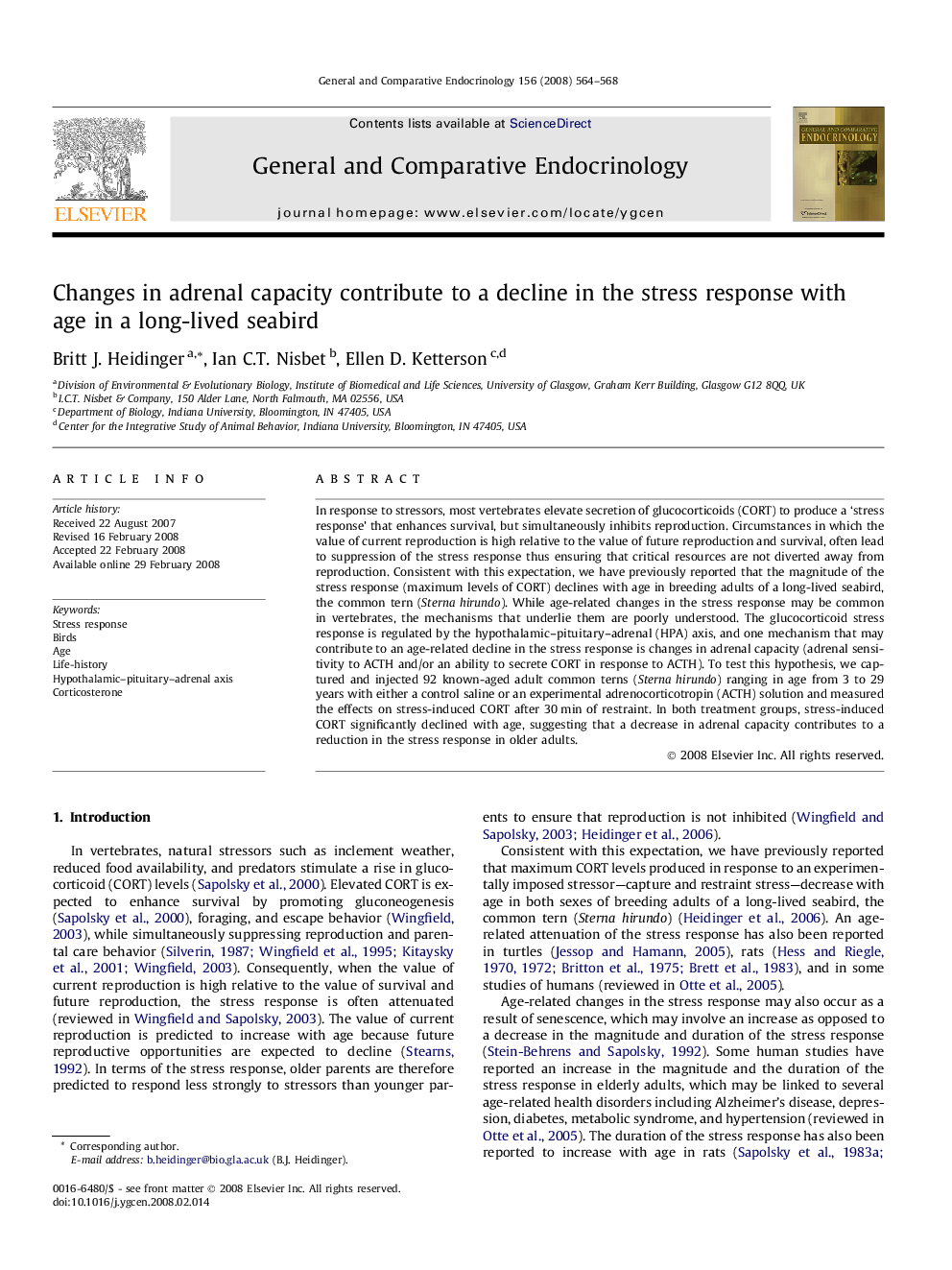| Article ID | Journal | Published Year | Pages | File Type |
|---|---|---|---|---|
| 2801919 | General and Comparative Endocrinology | 2008 | 5 Pages |
In response to stressors, most vertebrates elevate secretion of glucocorticoids (CORT) to produce a ‘stress response’ that enhances survival, but simultaneously inhibits reproduction. Circumstances in which the value of current reproduction is high relative to the value of future reproduction and survival, often lead to suppression of the stress response thus ensuring that critical resources are not diverted away from reproduction. Consistent with this expectation, we have previously reported that the magnitude of the stress response (maximum levels of CORT) declines with age in breeding adults of a long-lived seabird, the common tern (Sterna hirundo). While age-related changes in the stress response may be common in vertebrates, the mechanisms that underlie them are poorly understood. The glucocorticoid stress response is regulated by the hypothalamic–pituitary–adrenal (HPA) axis, and one mechanism that may contribute to an age-related decline in the stress response is changes in adrenal capacity (adrenal sensitivity to ACTH and/or an ability to secrete CORT in response to ACTH). To test this hypothesis, we captured and injected 92 known-aged adult common terns (Sterna hirundo) ranging in age from 3 to 29 years with either a control saline or an experimental adrenocorticotropin (ACTH) solution and measured the effects on stress-induced CORT after 30 min of restraint. In both treatment groups, stress-induced CORT significantly declined with age, suggesting that a decrease in adrenal capacity contributes to a reduction in the stress response in older adults.
